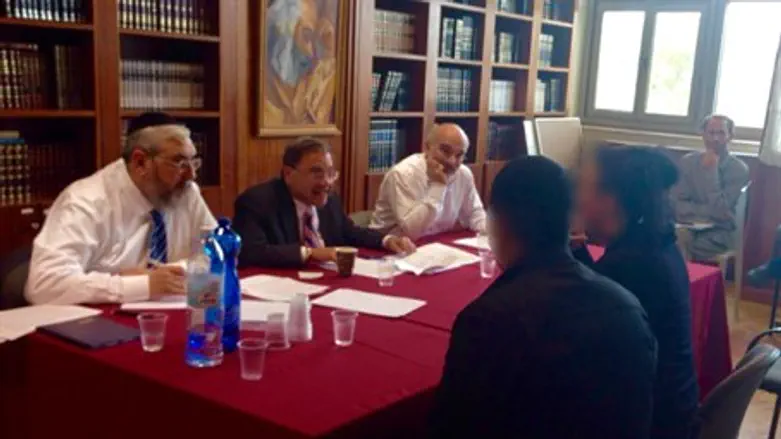
During a discussion in the Knesset's Immigration and Absorption Committee over private conversion courts, the organization Hotem submitted a claim declaring that publicly-funded rabbis are forbidden from participating in such courts.
Hotem, a professional religious organization, pointed to a number of problems with city rabbis running alternative rabbinic courts and noted that it's possible to submit a complaint to the disciplinary court against a rabbi who does so.
First of all, Hotem claims that there is an ethical problem with city rabbis acting without the authority of the Chief Rabbinate. "Rabbis acting against the Chief Rabbinate's instructions is unethical, as it separates them from the body under whose authority they function. As long as rabbis want to keep their publicly-funded jobs, they must act according to the laws and ethics of the body that appointed them."
In addition, city rabbis must act in accordance with the Chief Rabbinate's instructions regarding the issues legally assigned to them. Even kashrut certificates, which are signed by the chief rabbis of each city, are officially under the authority of the Chief Rabbinate.
"Ignoring this legal instruction could result in the filing of complaints to the disciplinary court, in accordance with clause 12A of the Jewish religious services amendment," Hotem warns.
The organization also noted the institutional conflict of interest, should a rabbi offer to perform the wedding of someone who underwent an alternative court's conversion. "This is a shining example of the conflict of interest prohibited by the law, when a public employee fulfills more than one public service role in two government bodies, and advances the interests of one while working in the other."
Hotem further claimed that city rabbis acting on alternative courts would hurt the converts themselves, because the government decision requires a convert to undergo a legally-recognized conversion with the approval of the head of the religious council with which he or she is affiliated. Thus, in effect, the State of Israel shows the need for an authorized official to determine the standard policy for conversions, so as not to deepen the inequality in Israeli society.
"Should converts be declared Jewish only by a marginal body and without the approval of the Chief Rabbinate, they would ultimately not be officially recognized as converts and will be badly harmed," says Hotem.